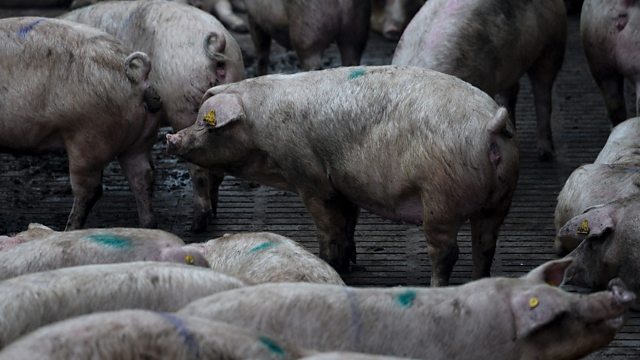Pork production: What is the true cost of Spain's 'mega-farms'?
Much of Spain's pork output comes from so-called mega-farms, where several thousand animals are intensively farmed at a relatively low cost.
Pig-farming in Spain has expanded enormously in recent years, driven to a large extent by a rise in demand for pork in countries such as China. Much of the pork output comes from so-called mega-farms, where several thousand animals are intensively farmed at a relatively low cost. But the sustainability of these farms has come under scrutiny. Alberto Garzón, the minister for consumer affairs, recently caused uproar when he said this method of farming was not sustainable, that it causes harm to the environment and leads to the export of poor-quality meat.
Guy Hedgecoe reports from Castilla–La Mancha, where many of the farms are located. He speaks to a local activist, who is campaigning against the mega-farm in her area, saying waste from intensive pig farming contaminates the local water supply, and leads to the deterioration of the landscape and air quality. She says there is also a negative economic impact, as people move away from the farms' locations. A local government leader refutes the claims, saying hygiene and food production quality are high.
Photo: Pigs in a pen at an industrial farm in La Portella near Lleida, north-eastern Spain Credit: Getty Images
Duration:
This clip is from
More clips from Newshour
-
![]()
Dim and bright: The mystery of supergiant star Betelgeuse
Duration: 03:23
-
![]()
Chilean artist Paz Errazuriz on documenting the Pinochet regime
Duration: 06:55
-
![]()
Marina Tabassum on designing the 2025 Serpentine Pavilion
Duration: 06:37






